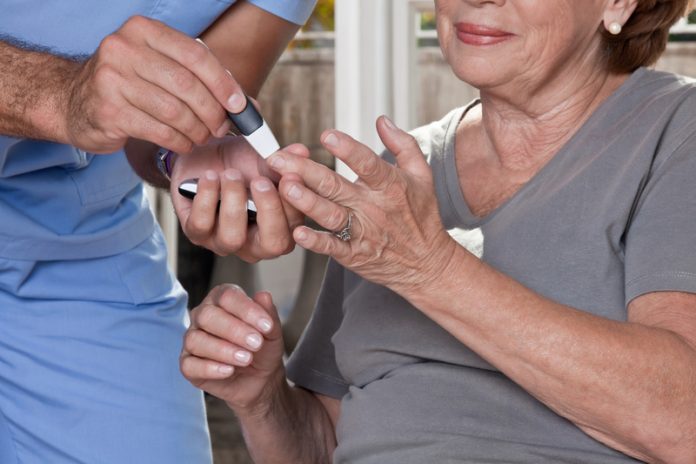Jenny Hirst MBE, Co-Chair of the InDependent Diabetes Trust shares her expertise on diabetes from the patients’ perspective
The InDependent Diabetes Trust (IDDT), a UK registered charity, was formed 25 years ago for people living with diabetes and by people living with diabetes. Including ‘independent’ in the name demonstrates that the Trust does not accept pharmaceutical industry funding, so is uninfluenced by this powerful group.
Global insulin production is by three large pharmaceutical companies, Novo Nordisk, Eli Lilly and Company and Sanofi Aventis. This monopoly is largely responsible for the high cost of insulin, making it unaffordable in some low/medium income countries. Even in high-income countries such as the United States, cost forces some people to limit their insulin use, putting their health at risk.
Type 1 diabetes is an autoimmune condition where the pancreas no longer produces insulin, therefore, treatment is always with insulin by injection or pump therapy. In Type 2 diabetes, the body either does not use the insulin it produces effectively or does not produce sufficient insulin and is often associated with obesity. The two types of diabetes are different but are often confused, however, both can lead to complications affecting the feet through damage to the nerves with an alarmingly high rate of amputations, the eyes, kidneys and the heart. Treatment is to try to maintain blood glucose levels as near normal as possible to reduce the risk of complications. Understandably, people with diabetes and their families live with the fear of long-term complications and with the day-to-day struggle to maintain target blood glucose levels.
When one person in a family has diabetes, other family members are affected. They have views and needs which may be different from those of the person with diabetes, but nevertheless, are important. For example, for people with Type 1 diabetes, the avoidance of hypoglycaemia is a daily source of worry for them and their family members who may have to handle severe hypoglycaemia. This involves dealing with comas, seizures, violent or unusual behaviour all of which are frightening for the family carer, especially when they are not included in doctors’ consultations or educational courses to learn about diabetes.
The lack of education also applies to people living with Type 2 diabetes. IDDT’s helpline frequently hears from people who have been given little information but are simply told to “cut out sugar” or “eat healthily” leaving them confused and worried. The lack of resources for the National Health Service (NHS), particularly in primary care, is short-sighted and risks future increased complications. To try to combat this, IDDT provides free information booklets in non-medical language.
NHS 10 year plan launched in January 2019
Considering that diabetes costs more than 10% of the NHS budget, it is surprising that there are only three relatively short paragraphs entitled ‘Diabetes’ in the NHS 10 year plan. With the exception of continuous glucose monitoring (CGM) for pregnant women, it is striking that there are no milestone dates for delivery. For diabetes, it is all in ‘the future’, so when can people with diabetes expect care and treatment to improve?
The FreeStyle Libre
The availability of the flash glucose monitoring system free on the NHS varies geographically because decisions are made locally by Clinical Commissioning Groups (CCGs). However, on World Diabetes Day, NHS England announced that from April 2019, the system will be free on the NHS for all patients with Type 1 diabetes who qualify for it in line with NHS clinical guidelines.
This was greeted with great relief by people with Type 1 diabetes – the safety of knowing glucose levels as many times a day as necessary and an end to years of painful finger-prick testing several times daily. However, scepticism crept in:
- What are the relevant guidelines for eligibility?
- Why are people with Type 2 diabetes taking insulin or other anti-hyperglycaemic agents being excluded from availability?
- Can central government force CCGs to fund the system or will patients have to continue to do battle?
As April looms, we still do not have the answers.
‘Items which should not routinely be prescribed in primary care’
At the time of writing, this NHS England consultation is ongoing and is calling for GPs to prescribe cheaper, equally effective alternatives of:
- Blood glucose test strips for people with Type 2 diabetes and;
- Needles for pre-filled and reusable insulin pens.
It refers to ‘deprescribing’ but for patients, changes in prescribing must focus on evidence of quality, safety, accuracy and choice with education and support to meet each person’s needs.
For people with diabetes, arguably the most important considerations are the comfort, convenience and quality of life. We fear that these are not on the list of priorities for today’s decisionmakers and question if the NHS basic principles of patients’ rights to an informed choice of treatment are being eroded.
Jenny Hirst MBE
Co-Chair
InDependent Diabetes Trust (IDDT)
Tel: +44 (0)1604 622 838











